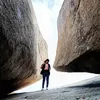Post
First of all plan or finalise ur estimated budget that u can spent during whole tour. Then select the place where u want to visit. Then try to find out cost of travelling departure and arrival from ur current city. Must try different websites for packages and compare them.
Do understand that what kind of traveller are your. are you slow traveller or vacations are your type. then understand what kind of places are you into? nature, history, culture. then decide your budget. and Google the main place as per your budget. once you finalize the place and for how many days. you can choose to visit related place around it. plot it on Google map so that you don't waste your time. now a days you can ask chat GPT to plan e trip.
Planning a trip can seem overwhelming, but with some organization and careful consideration, you can create a solid travel plan that enhances your overall experience. Here are some steps to help you make a good plan for a better travel experience: Determine your travel goals: Start by clarifying your travel goals and what you hope to achieve from your trip. Are you looking for relaxation, adventure, cultural immersion, or a combination? Understanding your objectives will guide your planning process. Choose your destination: Consider factors such as your interests, budget, time available, and any specific preferences you have. Research potential destinations to find the ones that align with your goals. Look into the local culture, attractions, climate, safety, and visa requirements to make an informed decision. Set a budget: Determine your travel budget, including accommodation, transportation, meals, activities, and any additional expenses. Be realistic about your financial constraints and consider ways to save money, such as booking flights and accommodations in advance or opting for budget-friendly alternatives. Research and plan your itinerary: Look into the must-see attractions, landmarks, and activities at your chosen destination. Create a rough itinerary that includes a balance of popular attractions and off-the-beaten-path experiences. Consider factors like opening hours, travel distances between attractions, and any seasonal considerations. Allocate time wisely: Avoid overpacking your itinerary and allow for some downtime. Account for travel time, rest days, and unexpected delays. Prioritize the activities and attractions that interest you the most, and be flexible with your schedule to allow for spontaneity and exploration. Book accommodations and transportation: Once you have a clear itinerary, start booking your accommodations and transportation in advance. Compare prices, read reviews, and consider factors such as location, amenities, and accessibility to make informed choices. Look for reliable transportation options that suit your needs, whether it's flights, trains, buses, or rental cars. Research local customs and culture: Familiarize yourself with the local customs, traditions, and etiquette of your destination. Understanding the cultural nuances will enhance your travel experience and help you interact respectfully with locals. Pack wisely: Make a checklist of essential items based on the climate, activities, and duration of your trip. Pack versatile clothing, comfortable shoes, travel adapters, toiletries, and any necessary documents. Consider the baggage restrictions and weight limits of your chosen mode of transportation. Stay organized: Keep all your travel documents, reservations, and important information (e.g., emergency contacts, addresses) in one place. Utilize travel apps and online tools to keep track of your itinerary, bookings, and any changes or updates. Remain flexible and open-minded: While planning is important, remember that unexpected events or opportunities may arise during your trip. Be open to adjusting your plans if necessary and embrace the spontaneity that travel often brings. By following these steps and taking the time to plan, you can ensure a smoother travel experience and make the most of your trip. Happy travels!
Hello. First of all it depends on whether you are travelling solo or in group. Based on that you can select travel destinations. Look at your budget, your interest, the climate and then you arrive at the destination. Most importantly plan well in advance if possible for longer distance trips.
Here are my tips for you: 1. You need to determine your travel goals. 2. List down the places you want to explore. 3. Plan your itinerary. Create an outline of your daily activities during your trip. Example. Day 1 - Place and Activities
Day 2 - Place and Activities
4. Consider your budget - this includes airfare, accommodation, and transportation to your food.
5. Research the place, culture, and means of transportation and where you want to stay. Are you a first-time traveler? You may also consider getting a local tour guide for worry-free travel.
I have been to more than 50 countries, so here a few of my tips :) Start with the basics - decide where you want to go and how long you'll stay. Think about what type of experience you want - beach vacation, city trip, or nature retreat. Narrowing your options helps focus your planning. Research online to find the top attractions and activities in your destination. Look for recommendations from travel blogs, guidebooks, and review sites. This will give you a list of "must-see" and "must-do" things to help maximize your time there. Make an itinerary, but leave some flexibility. Plan out the major things you don't want to miss, but don't overschedule every minute of the day. Leave some time for spontaneity or to adjust based on your interests once you arrive. Book accommodation, transportation, and tickets for popular activities in advance to avoid long lines and sell-outs. Consider travel perks like hotel rewards programs and airline miles to save money. For example, if you are traveling to Kosovo, I'd recommend reading personal stories from travelers that have been to Kosovo before: https://chi-nese.com/how-safe-i-felt-traveling-solo-in-kosovo-as-a-female/
I am not good at travel planning, which often leads to unexpected adventures and occasional chaos. Last year, I impulsively decided to do the Langtang Trek in Nepal, drawn by the promise of stunning Himalayan views and cultural richness. So you can follow https://www.nepalhightrek.com/activities/langtang-trek and get some new ways. However, I underestimated the importance of preparation. Without proper gear or a solid itinerary, I struggled with altitude and logistics. I missed out on some key sights simply because I hadn’t mapped out the trail correctly. Despite the hurdles, the breathtaking landscapes and warm hospitality of the locals made it worthwhile. Next time, though, I’ll plan better—or hire a guide!







